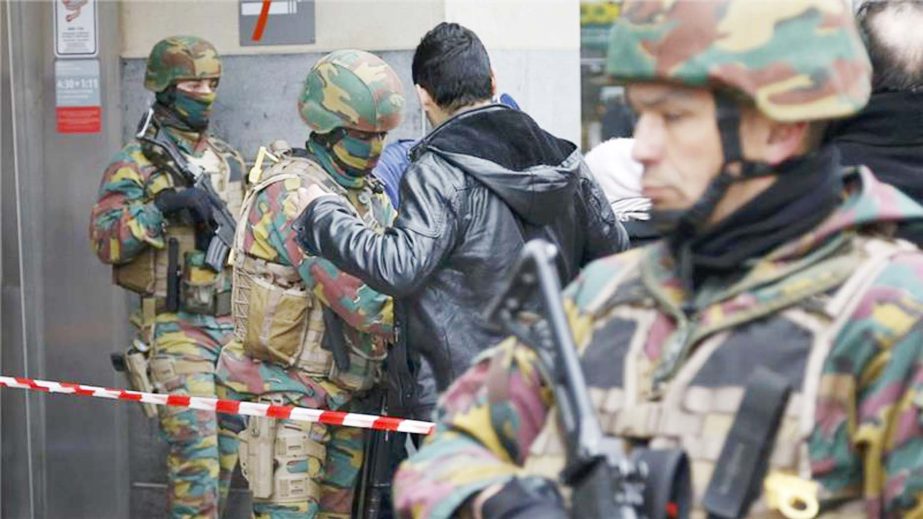
AP, Moscow :
Authorities in Europe and across the world tightened security at airports, railway stations, government buildings and other key sites after deadly attacks on Tuesday on the Brussels airport and its subway system.
With Brussels on lockdown and the French prime minister saying that Europe is “at war,” European leaders held emergency security meetings and deployed more police, explosives experts, sniffer dogs and plainclothes officers, with some warning against travel to Belgium.
European leaders held emergency security meetings and deployed more police, explosives experts, sniffer dogs and plainclothes officers, with some warning against travel to Belgium.
The nervousness was felt far and wide. In New York City, authorities deployed additional counter-terrorism units to crowded areas and transit locations.
In Moscow, Russian Transport Minister Maxim Sokolov told Russian news agencies that authorities will “re-evaluate security” at Russian airports, although its measures are already among some of the toughest across Europe. There have been mandatory checks at the entrances to airports since a 2011 suicide bombing at Moscow’s Domodedovo airport that killed 37.
Britain boosted security at its international transport hubs following the deadly attacks in Brussels on Tuesday as Prime Minister David Cameron urged Europe to stand together against the terror threat.
Security was stepped up at ports, borders and airports, though police chiefs and politicians insisted there was no specific intelligence pointing towards an attack in Britain.
Two Britons were wounded in the attacks on the main Brussels airport and a central metro station, the foreign office said.
Italy’s Prime Minister Matteo Renzi called Tuesday for a “European pact for freedom and security” following the attacks in Brussels claimed by the Islamic State group that killed around 35 people.
Authorities in Europe and across the world tightened security at airports, railway stations, government buildings and other key sites after deadly attacks on Tuesday on the Brussels airport and its subway system.
With Brussels on lockdown and the French prime minister saying that Europe is “at war,” European leaders held emergency security meetings and deployed more police, explosives experts, sniffer dogs and plainclothes officers, with some warning against travel to Belgium.
European leaders held emergency security meetings and deployed more police, explosives experts, sniffer dogs and plainclothes officers, with some warning against travel to Belgium.
The nervousness was felt far and wide. In New York City, authorities deployed additional counter-terrorism units to crowded areas and transit locations.
In Moscow, Russian Transport Minister Maxim Sokolov told Russian news agencies that authorities will “re-evaluate security” at Russian airports, although its measures are already among some of the toughest across Europe. There have been mandatory checks at the entrances to airports since a 2011 suicide bombing at Moscow’s Domodedovo airport that killed 37.
Britain boosted security at its international transport hubs following the deadly attacks in Brussels on Tuesday as Prime Minister David Cameron urged Europe to stand together against the terror threat.
Security was stepped up at ports, borders and airports, though police chiefs and politicians insisted there was no specific intelligence pointing towards an attack in Britain.
Two Britons were wounded in the attacks on the main Brussels airport and a central metro station, the foreign office said.
Italy’s Prime Minister Matteo Renzi called Tuesday for a “European pact for freedom and security” following the attacks in Brussels claimed by the Islamic State group that killed around 35 people.

